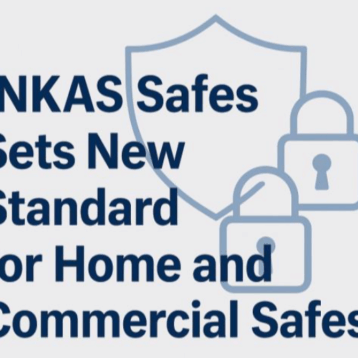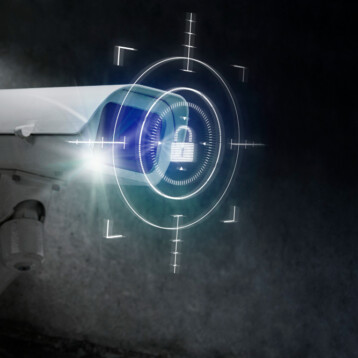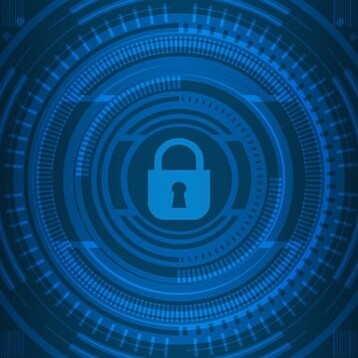Business cybersecurity is essential because hackers constantly try to infiltrate the IT infrastructure of companies to steal sensitive data and disrupt their operations. Successful cyberattacks can cause significant financial and reputational damage, which is detrimental to company profits. It can also make them violate data privacy regulations set by government bodies, which can attract severe penalties.
To prevent these mishaps, cybersecurity experts at the National Institute of Standards and Technology (NIST) have developed measures to protect company operations and ensure data privacy. These collective measures are called NIST SP 800-53, the gold standard for business cybersecurity.
NIST SP 800-53 was initially meant to be used by the US government, but it is effective in improving business cybersecurity and has been widely adopted. This is because it gives business owners and cybersecurity personnel guidance on preventing unauthorized access to their systems, educating staff, monitoring suspicious activities, and performing other activities necessary to strengthen their security posture.
In addition, NIST SP 800-53 helps companies comply with safety regulations, and this can be monitored with the compliance operations software created by Hyperproof.

Preventing Cyber Attacks
Cyber attacks come in different forms, depending on the expertise of the attacker and an organization’s cybersecurity measures. The common ones are ransomware, malware, virus, DoS, phishing, IoT exploitation, and cross-site scripting. Most of these cyber attacks can be prevented if a company takes the following steps:
Conduct risk assessment
Companies should perform risk assessments to identify and analyze the vulnerabilities in their network. This process involves ethical hacking, where internal cybersecurity professionals forcefully penetrate their company’s computer network like a cyber attacker would. This will give them a detailed account of the potential attacks they face and their possible effects. The results will determine how they will allocate resources to fix the vulnerabilities.
Mandate cybersecurity training
Business owners should train all their employees to identify and report suspicious activities. Cybersecurity training will teach them about the types of attacks the organization is likely to face and how they can prevent them. It increases their awareness and makes it difficult for people outside the company to launch successful attacks. Business cybersecurity is a collective effort; if one entry point is exploited, the whole company is at risk.
Install firewalls and antivirus software
Firewalls protect computers from malicious network traffic, keeping cyber attackers out. It monitors incoming and outgoing traffic to detect threats by comparing them to established security rules. Detected malicious traffic is filtered so that the system can work normally. Business owners can pair them with antivirus software protection for increased protection.
Antivirus software prevents infected files and programs from being downloaded or installed on a computer. They work in the background and offer real-time protection from viruses and malware. Company personnel can use them to search for malicious software hidden in their computer, but they must be constantly updated to recognize new threats. Antivirus software can quarantine and destroy these threats to stop them from spreading throughout the company network.
Create an incident response plan
Organizations should create a comprehensive incident response plan, so their cybersecurity personnel can quickly respond to and remediate security incidents. Every personnel’s role should be defined, and communication lines should be set up for effective collaboration.
Incident response plans prevent cyber attacks from causing significant damage to the network. They should be regularly updated and tested to ensure effectiveness because cyber attackers frequently change their strategy.
Implement access controls
Access control is a security measure that companies can implement to determine the members of staff authorized to access sensitive data, specific software, and crucial parts of their network. Some companies ensure their employees can only access parts of the network related to their department. They will need to make a request if they have a legitimate reason to access other parts of the network. This reduces the likelihood of a cyber attack affecting core business operations because successful attacks will be confined to specific parts of the network.
Hackers usually target lower-level employees with social engineering tactics because that is their best chance of infiltrating an organization’s network. However, access controls will protect the business because lower-level employees are usually restricted from the sensitive parts of an organization. This measure also safeguards the company from internal attacks.
Backup sensitive data
It is insufficient to rely on the safeguards mentioned above because it is impossible to predict when or how a cyber attack will occur. Business owners should save copies of all their sensitive and vital company data on cloud servers. This is an insurance against successful cyber attack because they will quickly recover the lost data and resume operations.
Backing up crucial data also protects against ransomware attacks. Ransomware attackers hold vital company data hostage until they receive monetary compensation. Without these backups, business owners will be forced to pay or shut down their organizations.
Vet third-party software
Business owners should thoroughly vet all third-party software before integrating it with their company’s IT infrastructure. The software providers they collaborate with must not have a questionable security history. This is because cyber attackers can use them as gateways into the company’s network.
Use strong passwords
All company accounts must have strong passwords to make it difficult for hackers to break into the network. Strong passwords usually have alphanumeric characters, a mix of upper and lowercase letters and symbols, and contain at least eight characters. These passwords are hard to guess or brute force.
All employees should be advised to never share their login credentials with anyone, even fellow employees. Company management should also mandate a periodic change of all passwords for added security.
Endnote
Every modern business owner should be wary of the cyber threats their organizations face and use appropriate measures to prevent them from causing harm. NIST SP 800-53 is a collection of security measures cybersecurity experts recommend for all companies because of its effectiveness in threat detection and control. It also ensures compliance with government data privacy regulation regulations. Businesses will also benefit from the preventive measures mentioned above because they are designed to protect them from hackers aiming to steal their sensitive data and disrupt their operations.










